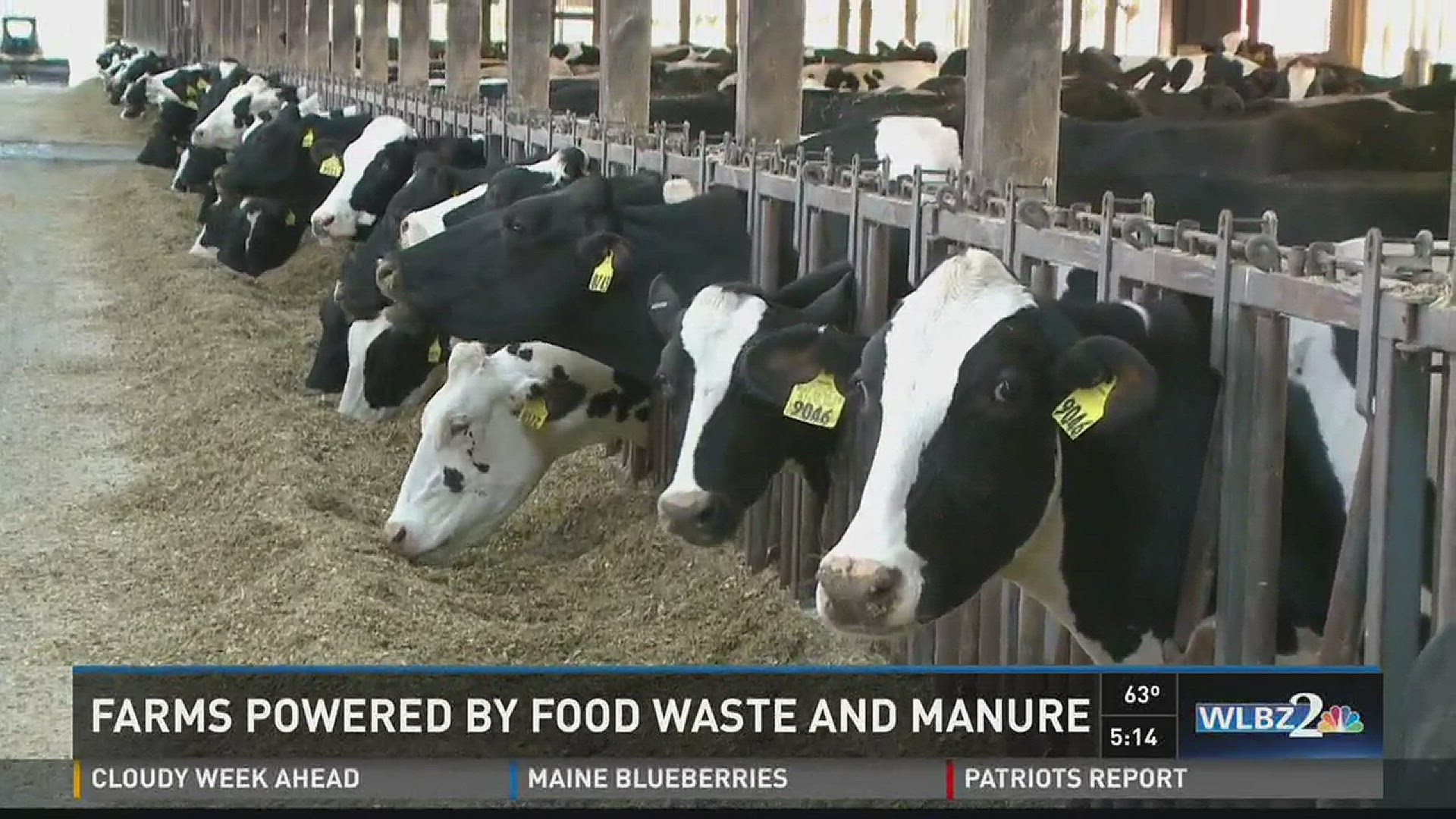EXETER, Maine (NEWS CENTER) — Maine has lost roughly 20 percent of it's dairy farms since 2010. There are now fewer than 250 in operation.
One farm in Exeter has found a way to solidify its future, by investing in technology that's allowed the farm to turn its cows into not only milk producers, but power producers too. And now, the farm is also helping to solve food waste problems.
Travis Fogler is a fifth-generation dairy farmer. He now milks about 1,100 cows. Making his Stonyvale Farm Maine's second-largest. The secret to the farm's continued success is that Fogler's cows aren't just making milk — they're making electricity.
"We joke that, someday, the manure could be more valuable than the milk we sell," he said. "It's not there yet, but this is a step and heading towards the process."
Stonyvale Farm's manure goes to Exeter Agri-Energy's on-site power plant. That manure creates methane gas, which powers a turbine that makes enough electricity to run the farm and sell back to the grid.
The solids from the manure are separated from the liquids, heated and treated and turned into bedding for the cows. The liquids become fertilizer for the corn and hay fields. "It's pretty simple but pretty complex all at the same time," Fogler said.
The farm and the power plant have now teamed with yet another company, Agri-Cycle, which is bringing in food waste from across the state to add to the manure to create more methane gas and more electricity. Agri-Cycle currently collects food waste from a number of businesses around the state, including Good Shepherd Food Bank, Unity College, Husson University and Mid-Maine Solid Waste Association.
"Food waste representing 30 to 40 percent of the trash is a significant part of that trash stream and so to be able to recycle that material we thought was very powerful," explained Agri-Cycle GM Daniel Bell.
Exeter Agri-Energy hopes to expand, which would allow it to re-use more food waste, power more homes and keep a fifth-generation dairy farm viable.
"We hope to be able to prove a successful model here, and going forward, helping other farms be able to take advantage of that as well," Fogler said. "We really think it can be something that can help sustain the dairy industry in the state of Maine going forward."
Exeter Agri-Energy and its partner business, Agri-Cycle, both received the 2016 Community Climate Champion award Monday from the Maine Conservation Alliance for their partnership to produce renewable energy using food waste and cow manure.

